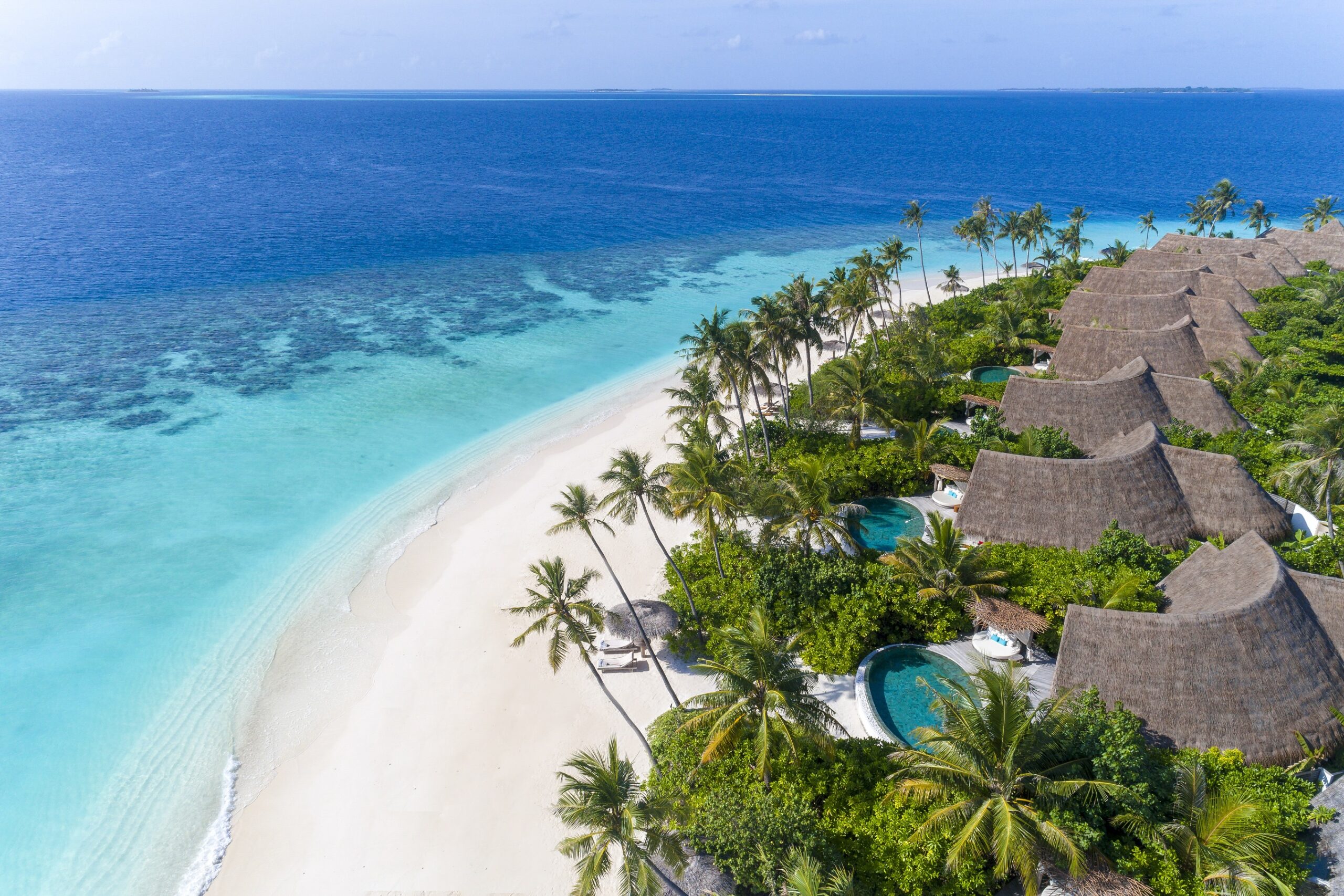American travelers planning tropical vacations are being urged to exercise heightened awareness following an updated US State Department travel advisory for the Maldives. The Department of State reissued a Level 2 travel warning on October 7, 2025, continuing to advise Americans to “exercise increased caution” when visiting the Indian Ocean island nation. While the Maldives remains one of the world’s most sought-after luxury travel destinations, known for its overwater bungalows and pristine beaches, the advisory highlights potential security concerns that travelers should understand before booking their tropical getaway.
Understanding the Level 2 Travel Advisory
The State Department’s travel advisory system operates on a four-tier classification designed to inform American citizens about potential risks when traveling internationally. The Level 2 designation for the Maldives falls into the “exercise increased caution” category, which represents moderate concern but doesn’t prohibit travel.
The updated advisory specifically warns about the risk of terrorist violence in the Maldives, including potential terrorist attacks and related activity throughout the island country. “There is risk of terrorist violence, including terrorist attacks and other activity in the Maldives,” the State Department cautioned in its official statement.
Key Safety Recommendations for Travelers
The advisory provides specific guidance for American tourists planning Maldives vacations. Travelers are strongly encouraged to “stay aware of your surroundings” and “avoid demonstrations and crowds” during their visit. These standard travel safety precautions become particularly important in destinations where security threats have been identified.
The State Department identified several locations where attacks may potentially occur, including:
- Tourist locations and resort areas
- Transportation hubs such as airports and ferry terminals
- Markets and shopping malls
- Local government facilities and administrative buildings
Unique Challenges of Island Geography
The Maldives’ geographic distribution presents specific challenges for emergency response. The nation comprises more than 1,100 individual islands spread across the Indian Ocean, creating a vast archipelago that complicates security operations and emergency services.
“Attacks may occur on remote islands,” the official advisory notes. “This can lengthen the response time of authorities.” This warning is particularly relevant for travelers staying at isolated resort islands, which are often located far from the capital and main population centers.
Capital City Security Assessment
Earlier in 2025, the State Department’s Overseas Security Advisory Council (OSAC) issued a separate advisory specifically addressing security conditions in Malé, the Maldives capital. The assessment classified Malé as having a “medium threat level” regarding terrorism directed at US government interests.
“The Government of Maldives’s counterterrorism efforts concentrate on countering violent extremism and limiting the flow of foreign terrorist fighters,” the OSAC advisory explained. This indicates ongoing government initiatives to address security challenges, though risks remain present.
Historical Security Incidents
The advisory references previous security incidents that have occurred in the Maldives, providing context for current concerns. “Violent attacks and threats have occurred against members of the local media, political parties, and civil society,” the document states.
Past incidents have specifically targeted secular bloggers and activists in the Maldives, highlighting the complex political and social dynamics within the country. While these incidents primarily affected local residents rather than international tourists, they demonstrate the presence of extremist elements within the nation.
Tourism Context and Popular Attractions
Despite security concerns, the Maldives remains one of the world’s premier luxury vacation destinations. Located in the Indian Ocean southwest of India and Sri Lanka, this tropical paradise has built its reputation on extraordinary natural beauty and world-class hospitality.
Signature Experiences
The Maldives is internationally famous for several distinctive features:
Overwater bungalows: These iconic accommodations have become synonymous with Maldives luxury resorts, offering direct access to crystal-clear lagoons and spectacular marine life.
Unique hotels: From underwater restaurants to glass-bottom villas, the Maldives hotel industry continually innovates to provide unforgettable experiences.
Beautiful beaches: The nation’s white sand beaches and turquoise waters consistently rank among the world’s most photographed coastal destinations.
Optimal Travel Timing
Understanding seasonal patterns helps travelers maximize their Maldives experience while potentially reducing exposure to crowded conditions mentioned in the advisory.
Dry season (November to April): This period offers consistently sunny weather and amazing diving conditions. The peak tourist season coincides with Northern Hemisphere winter, when travelers seek warm tropical destinations.
Wet season (May to October): This period typically brings fewer crowds and often features discounted resort rates. While occasional rain showers occur, many travelers find this trade-off worthwhile for a more peaceful experience.
Recommended Safety Protocols
Smart Traveler Enrollment Program (STEP)
The State Department strongly encourages all Americans traveling to the Maldives to enroll in the Smart Traveler Enrollment Program (STEP). This free service provides multiple benefits:
- Real-time security alerts about current conditions in the Maldives
- Embassy contact information and assistance resources
- Communication channels with US officials during emergencies
- Travel updates regarding changing security situations
Registration takes only minutes and can prove invaluable if security conditions deteriorate or natural disasters occur.
Practical Safety Measures
Beyond official enrollment programs, travelers can implement several personal safety strategies:
Situational awareness: Remain conscious of surroundings, particularly in crowded areas and public spaces identified as potential targets.
Communication plans: Establish regular check-in protocols with family members and maintain reliable communication methods.
Emergency preparation: Research emergency procedures at your specific resort and understand evacuation protocols.
Travel insurance: Consider comprehensive travel insurance that includes emergency evacuation coverage, especially important given the Maldives’ island geography.
Local guidance: Follow advice from resort security personnel and local authorities regarding safe areas and current conditions.
Global Travel Security Context
The Maldives advisory exists within a broader landscape of international travel security concerns. Countries worldwide face various security challenges that impact international tourism.
Comparative Advisory Levels
The State Department’s four-level system provides graduated warnings:
Level 1: Exercise Normal Precautions – Standard safety awareness appropriate for any international travel
Level 2: Exercise Increased Caution – Enhanced vigilance recommended due to specific concerns (current Maldives designation)
Level 3: Reconsider Travel – Significant risks present; non-essential travel should be reconsidered
Level 4: Do Not Travel – Serious threats to safety; Americans should not visit these destinations
Currently, 21 countries and territories carry the highest Level 4 designation, including nations facing armed conflict, severe political instability, or extreme crime levels.
Recent Industry Responses
The travel industry regularly adjusts operations based on security assessments. For example, Celebrity Cruises recently modified its schedule to avoid a popular port in Haiti, where the State Department maintains a Level 4 advisory warning Americans to avoid travel due to potential violence.
These industry decisions reflect ongoing evaluation of passenger safety against operational considerations, demonstrating how security concerns impact travel planning across multiple sectors.
Tourism Industry Perspectives
The Maldives tourism industry represents a vital component of the nation’s economy. The country has invested heavily in luxury hospitality infrastructure, creating hundreds of resort islands specifically designed for international visitors.
Resort security measures typically exceed standards on main islands, with many properties implementing:
- Controlled access to resort islands
- Security personnel monitoring arrivals and departures
- Guest screening procedures
- Emergency communication systems
- Coordination with local authorities
These measures don’t eliminate risks but demonstrate industry commitment to guest safety.
Making Informed Travel Decisions
The Level 2 advisory doesn’t prohibit travel to the Maldives but rather encourages informed decision-making. Prospective travelers should consider several factors:
Personal risk tolerance: Different travelers have varying comfort levels with security advisories.
Trip purpose: Honeymoons, family vacations, and business travel may warrant different risk assessments.
Specific locations: Understanding whether planned accommodations are on remote islands or near Malé affects security considerations.
Travel insurance options: Comprehensive coverage becomes more important in destinations with security advisories.
Flexibility: Booking refundable accommodations and flights provides options if conditions change.
Staying Informed
Travel conditions can change rapidly, making ongoing information gathering essential for international travelers. Resources for current information include:
- State Department travel advisories (regularly updated at travel.state.gov)
- Embassy alerts for Americans in the Maldives
- STEP enrollment notifications for registered travelers
- News sources covering Maldives developments
- Resort communications regarding local conditions
Historical Context of Maldives Tourism
The Maldives opened to international tourism in 1972 and has since developed one of the world’s most exclusive luxury travel markets. The nation’s tourism model—featuring one island, one resort concepts—creates naturally isolated environments that differ significantly from typical urban destinations.
This development strategy has helped the Maldives maintain environmental protection while building a reputation for privacy and exclusivity. However, it also creates the geographic challenges mentioned in the security advisory regarding emergency response times.
Looking Forward
The Maldives continues to welcome international visitors while working to address security concerns outlined in travel advisories. The Government of Maldives maintains counterterrorism programs and works with international partners to enhance security infrastructure.
For travelers, the key is informed decision-making based on current information, personal circumstances, and recommended safety precautions. The Level 2 advisory provides important context without suggesting the Maldives should be avoided entirely.
Those who choose to visit can enjoy the nation’s extraordinary natural beauty while implementing reasonable security awareness practices. Understanding potential risks allows travelers to make choices appropriate for their situations.
At The Inspiring Insight, we believe informed travelers make better travelers. Security advisories like the updated Maldives warning serve important purposes—not to discourage exploration, but to ensure travelers understand conditions and can prepare accordingly. Whether planning a tropical escape to the Maldives or any international destination, staying informed about travel safety concerns, enrolling in appropriate notification systems, and following State Department guidance helps ensure memorable experiences for the right reasons. The world remains full of incredible destinations, and understanding how to travel safely allows us to explore them responsibly.



